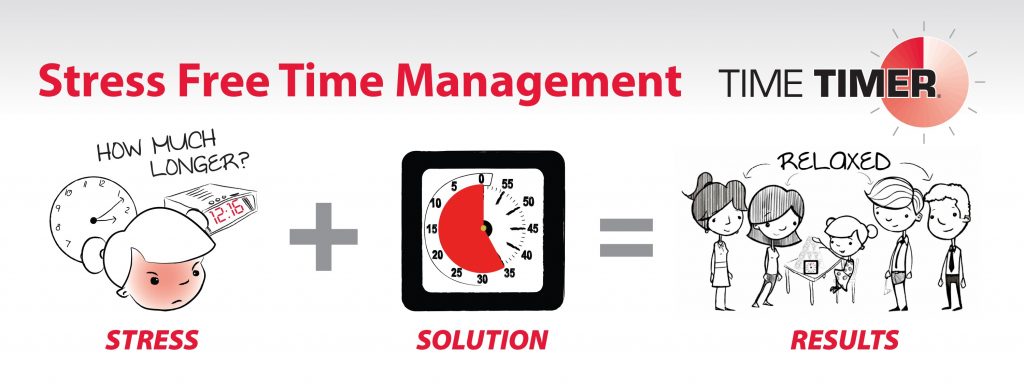By Chelsea Pierce
On March 11th, the World Health Organization declared the Coronavirus (COVID-19) a pandemic. Typical routines, such as going to the grocery store, traveling, dropping children off at school, heading to work, and enjoying free time with friends and family have all been disrupted. The highly contagious COVID-19 has altered the way citizens of the world perform daily tasks. Many schools are closing their brick-and-mortar doors and opening their digital doors.
How can parents and teachers support their students with diverse needs during this time of transition?
When choosing a timer for your student, consider their ability to maintain focus and remain on task. For students with exceptional needs, this can be a challenge. Visual timers enhance structure and predictability of any activity, whether it be academic or community-based.
To improve students’ abilities to attend to a task or activity try a no-frills elapsed Time Timer! Prior to beginning any assignment, chore, or unstructured free time, set a timer for your students. The elapsed-time feature stops the, “I just started playing!” or the, “This is taking forever” whining in their tracks. Children, parents, and teachers can keep track of the amount of time they’ve spent on a given task and how much time remains.
The Time Timer is a visual timer that displays elapsed time in an easy-to-view format. The website offers a variety of low-cost options such as the Time Timer Desktop App and iPad App, as well as other tangible timers. If you’re working on increasing self-regulation strategies and have kiddos or children who are more independent, check out the Time Timer PLUS Watch. Students can slide the watch on their wrist or set it in front of themselves and use it to self-monitor their time. These resources are easily accessible and ready to use in classrooms and homes with the transition to online learning.

Chelsea Pierce is a current Ph.D. student in the Exceptional Student Education Program at UCF. Chelsea has over six years of classroom-based experience as both a General Education teacher and a Special Education teacher. She worked with the Center for Autism and Related Disabilities (CARD) at the University of Central Florida, as well as CARD at the University of Florida (UF) Health Jacksonville. She worked for the UF Health Neurodevelopmental Pediatric Center, serving on the Multidisciplinary Developmental Assessment Team and administering assessments and consultations through the Florida Diagnostic Learning and Resource Systems, Multidisciplinary Center (FDLRS-MDC).
She’s presented at local and statewide conferences in areas of interest, including the use of visual supports and behavior management strategies. Her mission is to increase knowledge and understanding of medical professional and educational personnel serving children with medical complexities inclusive of behavioral, sensory and/or communication challenges.
